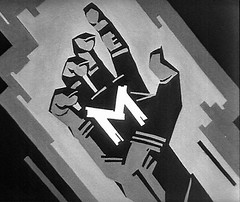Some time ago, Bogdana wrote an article (ro) in which she talked about "tradition vs. anniversary". Which was great, especially since, as people have been talking about for a while now, invoking tradition is one of the latest trends on the Romanian communcation market. More and more brands turn to tradition and evoke their past, no matter how relevant this actually is for the brand. For some reason, everybody seems to think that no matter what category some product belongs to, if you show the product has been on the market for a long while, it's enough to inspire the best feelings towards the brand, to create awareness and increase sales and so on. Well, history is after all a sign of quality, so this might actually work. However, i think that there might be a little problem when an ad break includes a bundle of spots looking pretty much the same and saying pretty much the same about different products. And i'm sure it might be just me being really stupid, but i have been confused myself for quite a while as far as which message/ spot to associate with which product.
Well, i was reading this article called "Storytelling: Escaping the Price War" on adage yesterday, and i was thinking about how little trouble all these guys advertising in the manner i described earlier took in order to find something trully relevant and authentic and memorable in the long history of these brands they're advertising. I mean i don't think it's enough to simply place the product inside or following some vintage-like images if you really want people to associate it with a relevant past or tradition and the values thus derived. I'm sure that if they were willing to dig a little, they would have discovered things which could have actually induced or reinforced the personality of those brands. Just like the article describes how "Mag-Lite has managed to capture both the hearts and minds of its customers" by using and highlighting stories such as the one of a policeman in Virginia, who wrote Mag-Lite in order to thank them because the flashlight had showed him the way out of a burning house, saving both his life and the life of somebody he'd rescued from that house. Just like Parker pen is known to have had a significant role in history, because it was used by Dwight D. Eisenhower when he signed the peace treaty in Paris, officially ending World War II; by Giacomo Puccini who let his Parker pen dance across the paper when he composed "La Boheme," and by Sir Arthur Conan Doyle when he created the infamous Sherlock Holmes. In other words, "if your product has a long history, chances are you can dig out stories from the past that can add value to the product in the present." If those stories are unique, and have a strong resonance, and actually connect the consumers with the spirit of the brand. No matter if they come from weird historical connections like this, people within the company who have made extraordinary achievements, the founder of the company, customers and so on.
Storytelling in a business context is not about telling stories just for the
sake of it. Rather, as rational and physical features are becoming easier to
imitate, authentic storytelling is becoming a growing source of competitive
power. All companies have authentic raw material: genuine, real-life episodes
that can be used in the continuous communication of messages and values that
appeal to key stakeholders. Little anecdotes, seemingly insignificant at first,
may very well be the stories that most effectively show why your company is
special -- whether it's the wacky yarn behind the product, a tale about the
company founder, achievements of outstanding employees or praise from thrilled
customers. As long as they are true, honest -- and, hopefully, unique -- you
will have a strategic tool for explaining how your company makes a
difference.


6 comments:
I know what I think is the biggest brand that storytelling built? .... [time for thinking] .... I think it's God.
I wouldn't go there if I were you.. don't challenge God in that way. I mean, I'm not a religious person, I'm an atheist myself, but I think God responds to such an intimate and omnipresent need of the human race, that you can hardly call him a brand; he goes beyond that - far beyond.. I don't think anyone is ready yet to explain him properly, as a brand or more, so I would just sit back for a while, until we understand more of ourselves and of our past, present and future.
I don't want to upset anyone. In someway I belive in God myself. I don't really want to explain the existence or the power of God by this, but the relation of the belivers with him. The loyalty beiond reason. The emotional, not the rational relationship. The fact that now I really feel unconfortable writing this... though there is no rational reason. The similarities in these relationships (human/brand, human/God) are big. I whould reccomend "Legendary Brands" by Lawrence Vincent. It really explains the power of storytelling. There is an excerpt here.
I'm not upset by what you've said, and I can see the similarities in the relationships myself, though I did not study them extensively; I don't know what bothered me in the first place about the refference to God.. most probably I associated it with the idea that advertising, or better said the consumer product is the contemporary God, and somehow I feel the last thing we need right now is yet another God that would encourage lack of reason.. or common sense for that matter. No hard feelings, ok? :)
of course not :)
pacat ca in ciuda interesului pentru strategie nu intelegi nimic
Post a Comment